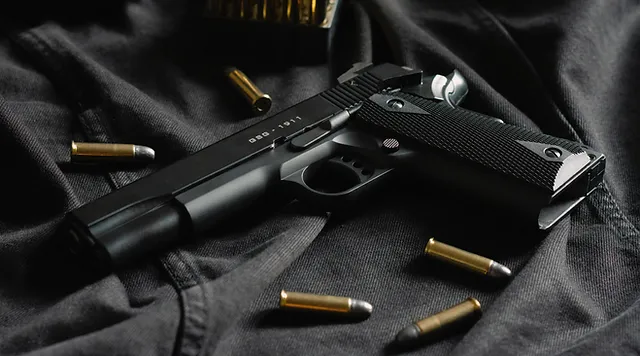Introduction to Weapons Firearm Violation Bail Bonds
If you or someone you know is facing charges related to weapons firearm violations, it’s crucial to understand the role of bail bonds in the legal process. Weapons firearm violations encompass a range of offenses related to the illegal possession, carrying, or use of firearms. In this article, we’ll delve into the intricacies of weapons firearm violation bail bonds, shedding light on their significance, the legal ramifications of such violations, and the bail bond process to get check it out.
Understanding Weapons Firearm Violations
Types of Weapons Firearm Violations
Weapons firearm violations include but are not limited to illegal possession, carrying without a permit, and use in the commission of a crime. Illegal possession refers to possessing firearms without the required licenses or permits. Carrying without a permit involves carrying firearms in public spaces without the necessary authorization. Use in a crime entails using firearms to commit or facilitate criminal activities.
Potential Consequences
The consequences of weapons firearm violations can be severe, ranging from fines and probation to imprisonment and loss of firearm privileges. Depending on the nature and severity of the offense, individuals convicted of weapons firearm violations may face significant legal penalties and long-term repercussions, including a criminal record that can impact various aspects of their lives.
Bail Bond Process for Weapons Firearm Violations
Arrest and Booking
Following arrest for weapons firearm violations, the individual is booked into custody, which involves recording personal information, fingerprints, and photographs. The booking process may also include a risk assessment to determine the defendant’s eligibility for release on bail.
Bail Hearing
After arrest and booking, the defendant is entitled to a bail hearing where a judge reviews the circumstances of the case and sets bail accordingly. During the bail hearing, the prosecution may present evidence supporting the need for bail, while the defense may argue for lower bail or release on recognizance.
Posting Bail Bonds
Once bail is set, the defendant or their representative must post bail to secure release from custody. This can be accomplished through various types of bail bonds, including cash bail bonds, surety bonds, or property bonds, each with its own requirements and implications.
Types of Bail Bonds for Weapons Firearm Violations
Cash Bail Bonds
Cash bail bonds require the defendant or their representative to pay the full bail amount in cash to the court or jail. If the defendant complies with court orders and appears for all scheduled court hearings, the cash bail is refunded at the conclusion of the case, minus any administrative fees.
Surety Bonds
Surety bonds involve a bail bondsman providing a financial guarantee to the court on behalf of the defendant. The bail bondsman charges a non-refundable fee, typically a percentage of the total bail amount, and pledges to pay the full bail amount if the defendant fails to appear in court.
Property Bonds
Property bonds allow the defendant to use real property, such as a home or land, as collateral to secure release from custody. The value of the property must exceed the bail amount, and the property must be free of any liens or encumbrances. If the defendant fails to appear in court, the court may foreclose on the property to satisfy the bail amount.
Conclusion: Navigating Bail Bonds for Weapons Firearm Violations
In conclusion, understanding the bail bond process for weapons firearm violations is essential for individuals facing such charges. By familiarizing themselves with the legal ramifications of weapons firearm violations, the bail bond process, and the types of bail bonds available, defendants can navigate the legal system with confidence and work towards achieving a favorable outcome in their case. If you or someone you know is facing charges related to weapons firearm violations, it’s crucial to seek legal counsel and explore all available options for securing release from custody. Remember, having a solid understanding of the bail bond process is the first step towards resolving weapons firearm violation charges.


